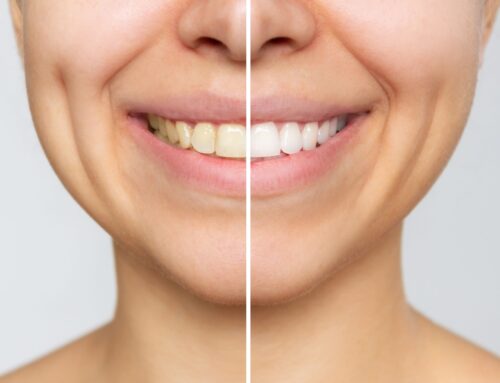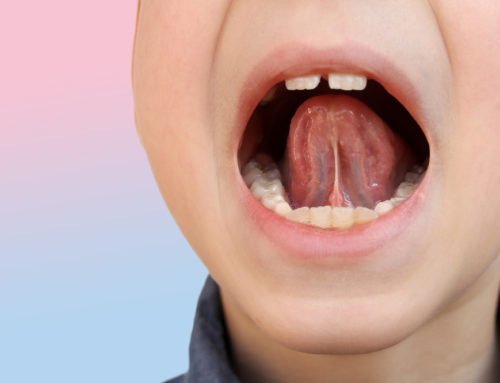
Getting Your Wisdom Teeth Removed
Wisdom teeth are third molars – the last teeth to erupt. Most people start to feel their wisdom teeth coming around their late teens or early twenties. The previous sets of molars will be in the back of your jaw. Talking about wisdom teeth can be scary for children and adults because removing those teeth usually involves some form of surgery. As a result, we all fear dealing with the dreaded “impacted” wisdom tooth, yet we still watch the funny viral post-surgery videos on YouTube.
Business Insider says about 5 million people yearly get their wisdom teeth removed just here in the United States. It’s become one of the most commonly performed dental procedures in the US.
Today’s modern technology and years of perfecting the procedure have helped us make wisdom teeth extractions commonplace with little discomfort during recovery, even if you’re still worried about your family recording you on the way home!
Let’s discuss why someone might need their wisdom teeth extracted, the procedure, and how long the recovery might take.
What Are Wisdom Teeth and When Do They Come In?
Wisdom teeth are the molars that come in at the back of your jaw/gums. They’re usually the last of your teeth to come in and typically start poking their way through in your late teens or early twenties. According to the American Dental Association, wisdom teeth usually come in between 17 and 21.
Most people have four in total (two on the top and two on the bottom), but it’s not uncommon to have more or less than that.
Technically, these molars are supposed to be your toughest teeth, able to chew through harsh foods. We rarely really need them since our food is packaged and cooked. Moreover, these teeth tend to cause oral problems since our jaws often don’t have enough space to accommodate them.
In some cases, wisdom teeth aren’t able to erupt peacefully. Your dentist may consider the problems associated with wisdom teeth and advise you to have them extracted preemptively.
Impacted Wisdom Teeth
As mentioned before, wisdom teeth don’t always come in perfectly. Impacted wisdom teeth are teeth that have become trapped in your gums or jawbone, unable to break through fully. This is a prevalent condition; in fact, more people than not have at least one impacted wisdom tooth.
Impacted Wisdom Teeth Symptoms
You should never have to diagnose your dental problems. It’s usually best to go in for regular check-ups and cleanings to get your dental health assessed by a professional. Having said that, if you are diagnosed with impacted wisdom teeth, here are some of the symptoms that you might notice:
- Pain or discomfort in the jaw or gum area.
- A bad taste in your mouth.
- Swelling of the gums in the area around the impacted wisdom tooth.
Causes Of Impacted Wisdom Teeth
Wisdom teeth can fail to emerge for a variety of reasons. For example, your jaw may be too small, creating overcrowding and insufficient room for the teeth to emerge fully. Teeth can also erupt at the wrong angle, pushing sideways instead of up. This can push against other nearby teeth, causing further damage or misalignment.
Impacted Wisdom Teeth Removal
For wisdom teeth that are not able to come in correctly, it’s pretty standard to get them removed. This is where a wisdom tooth extraction comes in. A wisdom tooth extraction is a surgical procedure involving the removal of one or more wisdom teeth.
Although this may sound a bit daunting, don’t worry too much. You’re not on your own. During your dental check-ups and cleanings, your dentist can monitor the status of your wisdom teeth and refer you to an oral surgeon if needed.
Why Remove A Wisdom Tooth?
Many people’s jaws are simply not big enough to house wisdom teeth. This is how they get impacted, or stuck, in your jaw and cannot grow through your gums like other teeth. Ouch!
As wisdom teeth attempt to break through the gums, they crowd surrounding teeth and can lead to pain, swelling, and infection.
The wisdom teeth that break through the gums may be so far back that proper cleaning and care are difficult, leading to cavities or gum disease. But you know what? Not all wisdom teeth need to be removed.
Some people only need one or two removed. It’s important to remember that wisdom teeth are not inherently bad. A skilled dental provider will be able to determine if it is safe to keep a wisdom tooth or if it is best to remove it!
Reasons and Benefits of Removing Your Wisdom Teeth
- Less Crowding Means Fewer Orthodontic Problems: As wisdom teeth grow and emerge, they can overload your teeth, causing damage to adjacent molars. When there is no room left for them, wisdom teeth can cause alignment problems over time as other teeth are slowly pushed out. As a result, removing your wisdom teeth reduces your chances of having braces or other expensive forms of corrective surgery to correct misalignment. If you’ve had braces or corrective dental surgery, wisdom teeth extraction will reduce your chances of losing your beautiful smile.
- Prevents Damage to Surrounding Teeth: Pressure from wisdom teeth can weaken and even destroy the roots of adjacent teeth or wear away enamel, leaving adjacent teeth vulnerable to decay and bone resorption. In addition, wisdom teeth themselves can be tough to reach and, therefore, need to be kept clean. Fully erupted wisdom teeth are considered impacted wisdom teeth. These are virtually impossible to clean. Wisdom tooth extraction can save you from costly and uncomfortable root canal treatment and fillings.
- Reduces the Risk of Dental Disease and Infection: Impacted wisdom teeth are more vulnerable to tooth decay or gum disease. One common consequence of impacted wisdom teeth is gingivitis, which can be persistent and difficult to treat. An infection under your gums can affect nerves or enter the bloodstream, becoming a condition called sepsis that affects the rest of the body. Sepsis can be a serious and life-threatening illness.
- Oral and Maxillofacial Pain Relief: Besides preventing tooth decay and disease, wisdom tooth extraction has the added benefit of relieving discomfort. Reducing pressure, reducing gingival sensitivity, and reducing tooth sensitivity are all possible by removing those painful third molars. The result is a better quality of life and fewer restrictions on the foods and drinks you can enjoy. Pressure from wisdom teeth can also cause chronic headaches.
- Prevents Cysts, Tumors, and Jawbone Damage: Impacted wisdom teeth can be a breeding ground for bacteria, which can lead to cysts or tumors that invade the jawbone and cause temporomandibular (the sliding hinge) joint pain, severe pain requiring specialist treatment.
- Prevents Sinus Problems: Wisdom teeth in the upper jaw can pressure the sinuses, creating stuffiness and possibly triggering headaches. If your wisdom tooth happens to get infected, this infection may also spread. If you begin experiencing sinus problems, mention it to your primary care provider and dentist.
- Prevents Future Dental Issues: Complications from wisdom teeth tend to progress slowly, and they may not be evident in the initial stages. This does not mean, however, that they won’t cause problems further down the line. Rather than paying for costly cavity fillings or braces someday, getting ahead of your dental health is much better. Make sure to come in for cleanings and check-ups at least once or twice a year. During these check-ups, your dentist can look at your wisdom teeth and advise whether you should have them extracted to avoid future problems.
Should I Have My Wisdom Teeth Removed?
Everyone has two options: to remove or not to remove. Of course, we’d all rather keep the teeth and not have issues if possible. However, extraction is the way to go if your wisdom teeth are causing pain, an infection, crowding other teeth, or are impacted
Not dealing with crowding, impaction, or pain? You may be the lucky winner of a pretty set of wisdom teeth. You get to keep yours! Either way, your dentist can help you make the best decision for your mouth and body.
Beyond general symptoms, as long as you regularly meet with your dentist, they will take X-rays of your teeth and jaw. These X-rays will allow your dentist to predict the growth patterns of your wisdom teeth. Some people have space in their mouths, but many people do not.
If it looks like your wisdom teeth are growing sideways, they’re impacted and need to be removed. Otherwise, they can lead to overcrowding, crooked teeth, and even gum infections.
And yes, they can even push your teeth out of alignment if you’ve already had braces.
First Signs Of Wisdom Teeth Coming In
Some common symptoms of wisdom teeth coming in are:
- Pain in the jaw area.
- Swelling of the gums, especially in the areas near your wisdom teeth.
- A bad taste in your mouth.
- Light bleeding in the gum area surrounding your wisdom teeth.
Keep in mind that although these symptoms are common, you should keep an eye out for anything concerning. Wisdom teeth can occasionally get infected, so it’s best to consult your dentist as soon as possible if you notice symptoms of infection or serious pain.
Preparing for Surgery
Preparing for wisdom teeth removal involves several essential steps to ensure a safe and efficient procedure. Here’s what you need to know:
Consultation and Evaluation
Initially, you’ll need a consultation and evaluation with your dentist or oral surgeon. This visit will likely include X-rays or 3D imaging to examine the position of the wisdom teeth and their impact on surrounding areas.
It’s also essential to provide a comprehensive medical history, including any medications you are taking, allergies, and any previous surgeries, to help determine the safest approach for anesthesia and surgery.
Choosing the Right Anesthesia
An essential part of the preparation is choosing the correct type of anesthesia, which depends on your case’s complexity and comfort.
- Local Anesthesia: Numbs the area around the wisdom teeth, suitable for less complicated extractions.
- Sedation Anesthesia: Administered through an IV, this option keeps you relaxed and minimally aware but not entirely unconscious.
- General Anesthesia: Used for more complex situations, making you completely unconscious during the procedure.
Be sure to follow any specific instructions related to fasting—typically, you should not eat or drink after midnight before the surgery day—and arrange for someone to drive you home afterward.
Day Before Wisdom Tooth Surgery
On the day before your surgery, adhere strictly to any eating and drinking restrictions and confirm whether you should continue taking your regular medications or need to adjust your dosages.
Day of Wisdom Tooth Removal
On the day of the surgery, arrive at the clinic or hospital as instructed, well before your scheduled time to complete any necessary paperwork. Wear comfortable clothing and avoid jewelry, contact lenses, or excessive makeup for comfort and safety.
Special Considerations
If you have conditions like anxiety or specific medical needs, discuss these with your surgical team ahead of time so that they can prepare to make your experience as comfortable as possible. It’s also beneficial to prepare a list of questions to ask your surgeon about the procedure, recovery, and follow-up care to clear up any uncertainties you might have.
Questions to Ask
Prepare a list of questions to ask before the procedure to clear up any uncertainties you might have about the surgery, recovery, and follow-up care.
By carefully preparing for your wisdom teeth removal, you can help ensure a smoother procedure and recovery. Make sure to follow all the instructions provided by your dental care team to minimize any risks of complications.
Wisdom Tooth Removal Procedure
The surgical procedure for removing wisdom teeth is a meticulous process designed to minimize discomfort and ensure a quick recovery. Before the surgery begins, your chosen form of anesthesia will be administered.
Local anesthesia is applied via injections to numb the area around the wisdom teeth, making it suitable for less complicated extractions. For more involved procedures, sedation anesthesia through an IV or general anesthesia may be used, allowing you to be either deeply relaxed or altogether unconscious.
Once the anesthesia has taken effect, the oral surgeon will start the procedure by making an incision in the gum tissue to expose the tooth and bone. In cases where the wisdom tooth is impacted or not fully erupted through the gums, the surgeon might need to remove some of the bone covering the tooth. If the tooth is particularly large or positioned awkwardly, it may be divided into smaller sections to facilitate a more manageable removal.
After the tooth is extracted, the surgeon will clean the site of the removed tooth, removing any debris from the tooth or bone to prevent infection. This step is crucial for promoting healing and reducing the risk of complications. Sometimes, stitches may be required to close the gum edges and aid the healing process.
However, not all extractions require stitches; this decision is based on the extent of the incision and the surgeon’s judgment.
Finally, a gauze pad will be placed over the extraction site to control bleeding and encourage clot formation. This gauze helps absorb blood and should be kept in place for 0 to 45 minutes after the surgery.
The procedure for a wisdom tooth extraction typically takes less than an hour, although the exact duration varies.
Postoperative Care and Recovery
Proper postoperative care is crucial to ensure a smooth recovery after wisdom teeth removal. Immediately following the surgery, you will begin recovery, managing symptoms and promoting healing.
Immediate Care After Surgery
Bleeding Management
Keep the gauze pad over the extraction site for at least 30 minutes after the procedure. Bite down gently but firmly to help form a blood clot in the socket. Changing the gauze periodically is necessary until the bleeding substantially reduces.
Pain Management
Pain relief is typically managed through prescribed medications or over-the-counter pain relievers recommended by your surgeon. It’s essential to start taking the pain relievers as soon as you feel the local anesthesia wearing off to manage discomfort effectively.
Swelling and Bruising
Swelling is a normal response to surgery. Apply an ice pack to the outside of your cheek intermittently—20 minutes on, followed by 20 minutes off—to help reduce swelling and bruising.
This is most effective within the first 48 hours after surgery. Swelling typically goes away a week after surgery.
Long-Term Care
Oral Hygiene
Maintain a clean mouth without disturbing the surgical site. Rinse your mouth gently with salt water or an antibacterial mouthwash several times a day, especially after eating, to reduce the risk of infection, if your surgeon recommends. Avoid vigorous mouth rinsing or touching the extraction site with your fingers or toothbrush.
Diet
Stick to a soft or liquid diet for the first few days. Foods like soup, yogurt, and applesauce are ideal as they require minimal chewing and will not irritate the extraction site. Gradually reintroduce solid foods into your diet as your healing progresses.
Activity Level
Limit physical activity for the first few days. Strenuous activities can increase bleeding, swelling, and discomfort. You should take it easy and avoid heavy lifting and vigorous exercise until you feel ready to resume normal activities.
Monitoring for Complications
Dry Socket
Be alert for signs of dry socket, a condition where the blood clot at the extraction site fails to develop or dislodges or dissolves before the wound has healed. Symptoms include severe pain at the extraction site, visible bone in the socket, and sometimes pain radiating to the ear.
Infection
Watch for signs of infection, including fever, severe pain that doesn’t improve with medication, and increased swelling or redness at the surgery site.
Follow-Up Care
Schedule follow-up visits with your dentist or oral surgeon to ensure proper healing and discuss ongoing concerns. These appointments are crucial for assessing your recovery and addressing any complications.
Potential Risks and Complications
Although wisdom teeth removal is a standard and generally safe procedure, it carries some risks and potential complications like all surgeries. Understanding these risks can help you monitor your recovery more effectively and seek timely medical attention.
Common Risks
- Bleeding: Some bleeding is normal after extraction, but excessive or prolonged bleeding may require medical attention.
- Infection: The extraction site is susceptible to disease, which can be indicated by persistent pain, swelling, fever, or foul-tasting drainage.
- Swelling and Bruising: Expected after surgery, excessive swelling or bruising may need to be evaluated by a surgeon.
Less Common Complications
- Dry Socket: This painful condition occurs when the blood clot at the extraction site fails to develop or is dislodged, exposing bone and nerves. Symptoms include severe pain a few days after surgery and a visible bone in the socket.
- Nerve Damage: Temporary or, rarely, permanent nerve damage can occur, especially if the wisdom teeth are deeply embedded. This might result in numbness or tingling in the tongue, lip, chin, teeth, or gums. Nerve damage from wisdom teeth surgery may last a few weeks to months following the procedure.
- Damage to Nearby Teeth: Tools used during the extraction could damage adjacent teeth or dental restorations, such as crowns or bridges.
- Jaw Fracture: Extremely rare, but the jawbone might be weakened during the procedure, especially in older adults or in cases of extensive surgical procedures.
- Sinus Issues: Upper wisdom teeth near the sinuses, and their removal might open the sinus cavity. This complication may require additional surgery to correct.
Managing Complications
- Follow-Up Care: Regular follow-up visits with your dentist or oral surgeon are crucial for the timely detection and management of any complications.
- Medications: Antibiotics and other medications may be prescribed to manage infection and pain.
- Immediate Attention: Contact your healthcare provider if you experience severe pain, swelling, fever, or any unusual symptoms following the surgery.
By being informed of these potential risks and complications, patients can be proactive about their care and more likely to recover smoothly. If you have any concerns during your recovery period, do not hesitate to reach out to your dental care provider.
FAQs About Wisdom Tooth Removal
Are There Alternatives to Wisdom Teeth Removal?
If you are hesitant to undergo wisdom teeth removal, then there are additional options to consider that your dental provider may suggest. Some alternatives to wisdom tooth removal include:
-
- Frequent Appointments: If wisdom teeth are not currently causing any issue to the teeth, nor pose a risk of any future complications, then your dentist may suggest close monitoring of the teeth. This can be frequent appointments for check-ups and X-rays to ensure wisdom teeth are not causing any pain or risk of complications.
- Braces: In some cases, braces can help with alignment issues, potentially caused by wisdom teeth. However, if wisdom teeth are the root (no pun intended) cause for misalignment, then it may be more beneficial to remove the wisdom teeth completely.
- Partial Extractions: Not all wisdom teeth need to be removed in some cases! For some patients, only partial extractions may be required for relief from wisdom tooth pain
How Much is Wisdom Teeth Removal?
According to Delta Dental Insurance, the average cost of a simple wisdom tooth removal clocks in at about $75-$200 per tooth. However, this cost can increase exponentially if the wisdom teeth are impacted or have other complications. That’s why having dental insurance is so important. When selecting a plan, ensure what’s covered and how soon the insurance can be used after signing up.
What Is The Right Age for Wisdom Teeth Removal?
There isn’t necessarily a rule that states when people should get their wisdom teeth extracted. The soonest a wisdom tooth can safely be removed is after the root has developed to two-thirds of its adult size.
While removing a tooth this early is generally unnecessary, there are some cases where this will make sense for the best oral health results. On average, wisdom teeth extractions are recommended between 18 and the early 20s. Some dentists even recommend removing them as young as age 13, depending on the structure of an individual’s mouth.
Around this age, wisdom teeth should protrude through your gums and roots. At this point, you should consult with your dentist, as there may be some issues with the growth rate. If they are too developed, they can cause crowding and other issues that will shift the placement of your teeth. If they are too underdeveloped, they may need to stay longer before removal to ensure proper extractions can be made.
Also, in this time frame, there are fewer risks for complications before, during, and after surgery.
Studies have shown that older patients experience more complications during the actual extraction process, as well as during postoperative recovery, in comparison to younger patients.
Can I Have Wisdom Teeth Removal Surgery After 40?
Getting your wisdom teeth removed after the age of 40 is often risky. At this age, it becomes more likely that the nerves next to your wisdom teeth might get damaged during the wisdom teeth removal process, leading to serious dental problems. Also, your teeth will be more firmly attached to your jawbone at this age. As a result, one of the risks of this oral surgery is damage to your jaw.
Does Everyone Have Wisdom Teeth?
Surprisingly, the answer is no. Some people may have just one, two, three, or no wisdom teeth whatsoever. Although the exact cause of this is unknown, genetics plays a large part in whether or not you have wisdom teeth. So, if neither of your parents ever had wisdom teeth, you may not either. Remember, however, that just because your wisdom teeth haven’t erupted yet doesn’t mean you don’t have any. Some wisdom teeth become impacted and are unable to erupt to the surface.
What Can I Eat After Wisdom Teeth Removal?
Stick to soft foods and liquids for the next few days. Some foods to enjoy following wisdom teeth removal include:
- Yogurt
- Soup
- Smoothies
- Bone broth
Try getting all the nutrients your body needs throughout the next week or so. Although it may be tempting, fasting is not a good idea since you’ll need all the healthy foods you can get to speed up the healing process. Regardless, please consult your dentist or oral surgeon for after-care instructions and follow them as closely as possible.
Why Do Wisdom Teeth Need to Be Removed?
Wisdom teeth are often removed because they can cause problems as they develop and crowd other teeth, potentially leading to pain, infections, and other dental issues. Sometimes, they are impacted or misaligned, negatively affecting your oral health.
How Long Does Wisdom Tooth Surgery Recovery Take?
Most people can resume normal activities within a few days, but the surgical site itself may take a few weeks to heal fully. The intensity and duration of pain and swelling vary, but improvements are typically noticeable within a week.
Can I Drive Myself Home After Wisdom Teeth Surgery?
No, if you receive sedation or general anesthesia, you will need someone to drive you home. These forms of anesthesia can impair your judgment and reflexes, making it unsafe to drive.
What Should I Do If I Experience Wisdom Teeth Surgery Complications?
Contact your dentist or oral surgeon if you experience severe pain, excessive bleeding, signs of infection, or other unusual symptoms. Following up as recommended is essential to ensure proper healing and manage any complications.
Find Out About Your Child’s Wisdom Teeth at Snodgrass-King Dentistry
If your child is a teenager, start talking to your dentist about wisdom teeth. It doesn’t hurt to get their early opinion and begin devising a plan for the future. And yes, that plan may change. But you’ll be prepared!
Here at Snodgrass-King Dental, we offer dental services for the whole family. The best thing about us is that you can come in for your own dental check-up while your child sits down for theirs!
We also have a variety of locations all across Tennessee, including offices in Mt. Juliet, Murfreesboro, and the Franklin/Cool Springs area. You’ll also find that each one of our locations prioritizes patients above all else. We know that toothaches can be a scary time, so we do everything we can to make your dental visits a little bit easier.
So don’t wait. If you or your child is experiencing wisdom tooth pain, come on in, and we’ll take a look. We can perform an evaluation and take some X-rays.
Following that, we’ll do our best to get you treated or referred to a specialist as soon as possible. Whether you need dental care for yourself or your child, make an appointment at Snodgrass-King Dentistry today! With four separate locations in the greater Nashville area, you will be sure to find the perfect location for you and your family. Give us a call or request an appointment easily online. Our mission statement is “We keep you smiling for life!”





